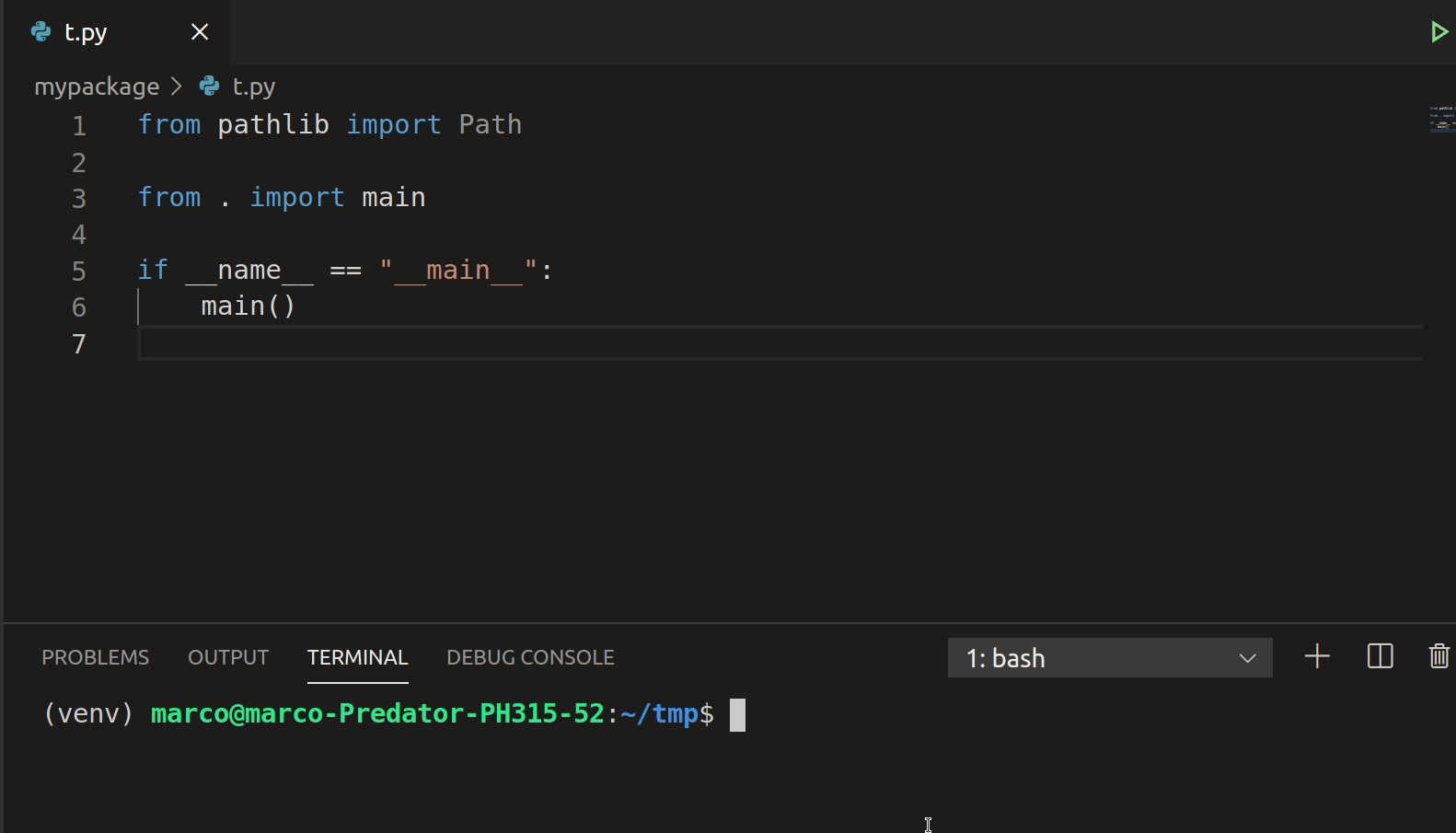A tool and pre-commit hook to automatically convert relative imports to absolute.
$ pip install absolufy-importsSee pre-commit for instructions
Sample .pre-commit-config.yaml:
- repo: https://github.com/MarcoGorelli/absolufy-imports
rev: v0.3.0
hooks:
- id: absolufy-imports$ cat mypackage/myfile.py
from . import __version__
$ absolufy-imports mypackage/myfile.py
$ cat mypackage/myfile.py
from mypackage import __version__If your package follows the popular ./src layout, you can pass your application directories via --application-directories, e.g.
$ cat src/mypackage/myfile.py
from . import __version__
$ absolufy-imports src/mypackage/myfile.py --application-directories src
$ cat src/mypackage/myfile.py
from mypackage import __version__Multiple application directories should be comma-separated, e.g. --application-directories .:src. This is the same as in reorder-python-imports.
Use the --never flag, e.g.
$ cat mypackage/myfile.py
from mypackage import __version__
$ absolufy-imports mypackage/myfile.py --never
$ cat mypackage/myfile.py
from . import __version__Use the --keep-submodules-relative flag. By default, submodules are considered to be the first level of the directory. E.g. if you have
├── mypackage
│ ├── library1
│ │ ├── foo.py
│ │ └── subdirectory
│ │ ├── bar.py
│ │ └── baz.py
│ └── library2
│ └── qux.py
and
$ cat mypackage/library1/subdirectory/bar.py
from mypackage.library1.subdirectory import baz
from mypackage.library1 import foo
from mypackage.library2 import quxthen you will get
$ absolufy-imports mypackage/library1/subdirectory/bar.py --keep-submodules-relative
$ cat mypackage/library1/subdirectory/bar.py
from . import baz
from .. import foo
from mypackage.library2 import quxTo specify a custom list of submodules, you can use the --submodules flag, e.g.
$ absolufy-imports mypackage/library1/subdirectory/bar.py \
--keep-submodules-relative \
--submodules '{".": ["mypackage.library1", "mypackage.library2"]}'Note that they need to be in json format, and the keys should be the application directories.
Check out pyupgrade, which I learned a lot from when writing this.

